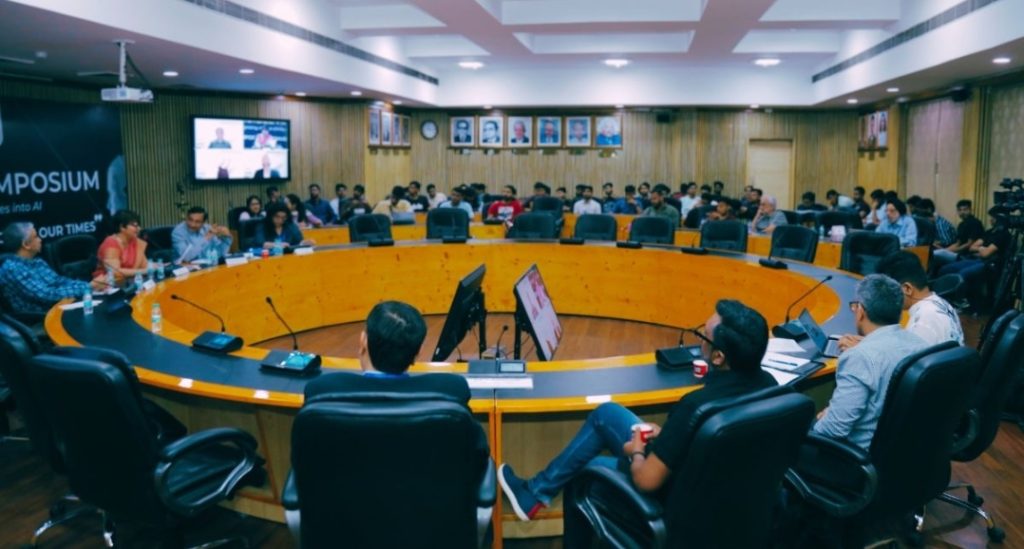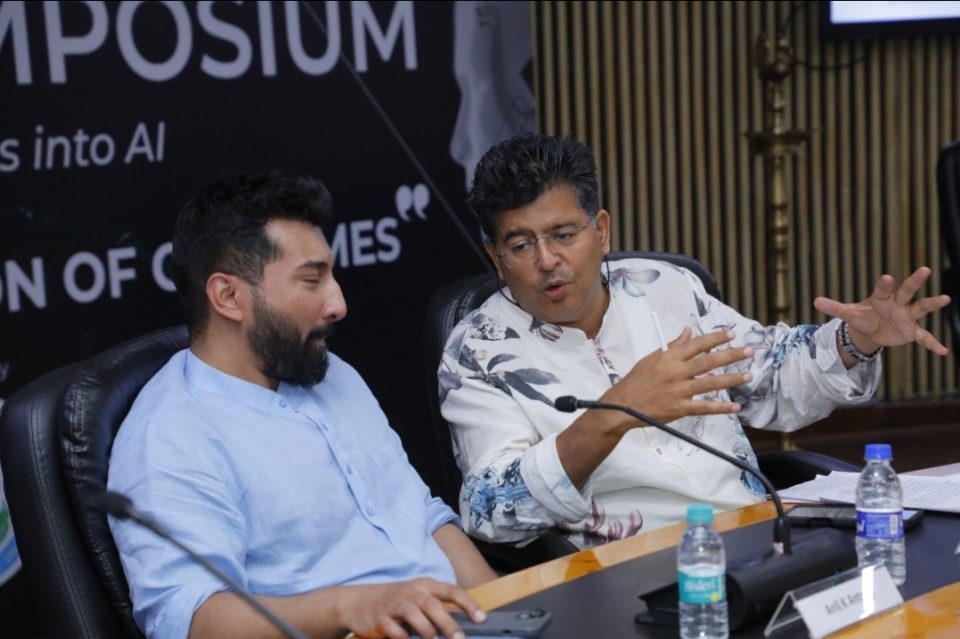Can We Govern AI Before It Governs Us?
A4G Impact Collaborative and DTU’s Responsible AI Symposium Puts Customer Trust, Ethics, and Human Experience at the Center
In this digital era artificial intelligence quietly powers everything from banking apps to healthcare diagnostics. The question looms large—can we govern AI before it governs us? This was the central concern driving the Responsible AI—Governance & Ethics Symposium. It launched by the A4G Impact Collaborative in partnership with Delhi Technological University (DTU) on April 16, 2025.
Held at DTU’s sprawling campus in New Delhi, this landmark symposium marks a bold expansion of A4G’s mission—from AI for Good in sectors like sustainability and mental well-being—to now tackling AI governance and ethical frameworks that directly shape human and customer experiences.
Human-Centered AI: The Core of Customer Trust
Led by Nitin Dhawan, Co-founder of A4G Impact Collaborative, the symposium placed the user experience—be it a consumer, citizen, or stakeholder—at the heart of AI governance discourse. Dhawan, also the event’s moderator, set the tone early on:
“AI must remain governed by and aligned with the best of what makes us human.”
In other words, ethical AI is not only about regulating code or curbing power imbalances—it’s about building systems that people can trust. Systems that respect privacy, minimize bias, and uphold dignity. And ultimately, systems that enhance customer experience (CX), not complicate it.
Symposium Highlights: Framing the CX Lens on Responsible AI
1. Building Governance Frameworks That Protect User Rights
The morning session—“Human Values and Legal Frameworks for AI Integration”—focused on frameworks that could embed empathy, accountability, and fairness into AI design.
Legal scholars, ethicists, and philosophers discussed the importance of transparency and explainability in AI systems that touch millions of lives, such as credit approvals, facial recognition, or health insurance. These frameworks, once implemented, could ensure customers understand how and why an AI decision is made—a core element of a good CX journey.
2. Panel on AI’s Societal Impact: Creating Equitable Access for All
The afternoon panel turned toward the broader societal implications of AI. It highlighted the urgency of creating inclusive access to AI benefits.
Dr. Shakti Goel, Chief Architect & Data Scientist at Yatra.com, emphasized the need to anchor AI systems in cultural contexts. This means crafting algorithms that understand local nuances, dialects, and behavioral patterns—thus providing more relevant, respectful, and personalized customer experiences.
Dr. Vivienne Ming, an AI visionary, warned of using AI merely to optimize efficiency at the cost of human potential and creativity. Instead, she urged, “Let technology elevate humanity, not replace it.” A philosophy that mirrors CX’s core: enhancing real lives, not just data points.
3. Cross-Sector Collaboration: CX as a Shared Responsibility
The event brought together a powerful coalition of voices—
from Anil Antony, National Spokesperson of the BJP, to Prof. David Danks of the University of California, to UNESCO’s Dr. Nandini Chatterjee Singh.
Antony stressed India’s opportunity to define AI with Indian characteristics, drawing parallels with UPI’s customer-first model. He argued that India could lead the world in creating ethical, inclusive AI experiences that reflect our cultural values of spiritual wisdom and social balance.
Such inclusive models matter deeply to CX because they ensure no demographic is left behind, and AI solutions are intuitive and equitable—whether one is a farmer using a government chatbot or a city dweller using AI-powered banking.
Academic Leadership for Ethical Innovation
Dr. Prateek Sharma, Vice Chancellor of Delhi Technological University, emphasized academia’s role in building the ethical backbone of AI.
“DTU is proud to host this landmark event that aligns perfectly with our commitment to technological innovation guided by human values,” he said.
This collaboration between DTU and A4G exemplifies a triple-helix approach—government, academia, and civil society working together to create AI that prioritizes human needs and user expectations. It underscores that AI governance is not a tech issue alone—it’s a CX mission.
Emerging Questions for Customer Experience in AI Era
The symposium raised critical CX-related questions:
- How can AI systems ensure fairness when customers come from diverse linguistic, cultural, or economic backgrounds?
- What mechanisms should allow customers to contest or appeal automated decisions?
- How can consent, privacy, and control be built into customer-facing AI tools by design?
These questions, once considered peripheral, are now central to brand trust, product adoption, and user satisfaction. As more organizations embed AI into daily operations—from retail and telecom to finsance and governance—the answers will define the future of CX itself.

A4G’s Expanding Mission: From Sustainability to Ethical Intelligence
With this symposium, the A4G Impact Collaborative adds a third vital pillar to its global initiatives—AI Governance & Ethics, joining AI for Sustainability and AI for Mental Well-being.
According to Dhawan, this is a natural evolution:
“AI is no longer just a technological issue — it’s a societal choice.”
By grounding AI in ethics, governance, and empathy, A4G aims to future-proof customer experiences across sectors—be it in personalized learning, sustainable farming, or mental health apps.
A4G’s approach encourages open-source collaboration, ensuring solutions are not only technologically sound but human-centered, inclusive, and cross-border.
Final Takeaway: Embedding Ethics Into the Customer Journey
What made the Responsible AI Symposium stand out was not just the diversity of speakers or the urgency of the topics—it was its clear CX lens.
It reminded us that AI is not neutral. It reflects the priorities of its creators. And if we fail to build guardrails now, we risk eroding customer trust, social equity, and even democratic participation.
From virtual assistants to smart wearables, customers increasingly interact with AI without even realizing it. Thus, governing AI ethically is not optional—it is foundational to delivering meaningful, inclusive, and safe experiences.

